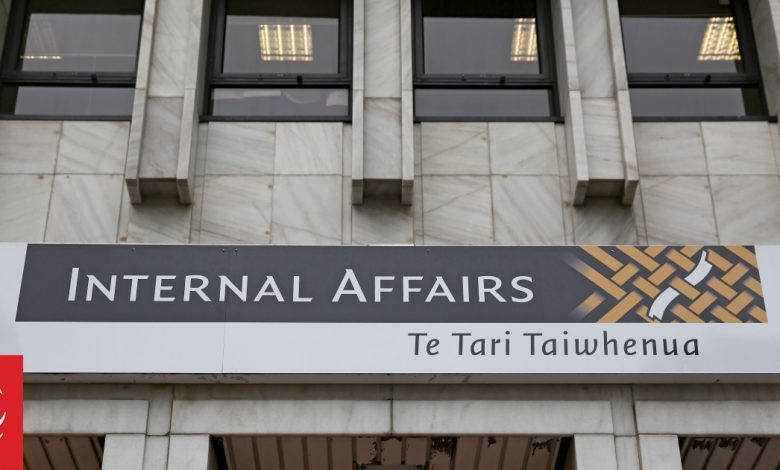Internal Affairs job cuts will lead to more Kiwis being scammed online, union says

More New Zealanders will be scammed and exposed to violent extremism online, while more children will be at risk of sexual exploitation due to “reckless” job cuts at the Department of Internal Affairs, the Public Service Association says.
Internal Affairs has confirmed 76 roles are being axed at its Regulation and Policy branch, as part of the 7 percent cost-cutting demanded by the government.
About one in five roles are going at the Digital Safety and Anti-Money Laundering groups – a net loss of 22 roles across both those groups.
PSA assistant secretary Fleur Fitzsimons said these workers were the front-line of protecting New Zealanders from online harm and international crime syndicates.
“This is reckless and disturbing, and more Kiwis will be scammed, exposed to violent extremism and sexual exploitation at a time of rising harm online. It makes no sense,” she said in a statement.
The Department’s Digital Child Exploitation Filtering System has blocked 4.6m views of child exploitation in the last five years.
In the 2022/23 financial year, Internal Affairs also received 238,000 reports of potential scams to its 7726 unsolicited text message service – 90 times more than received than three years previously.
Minister of Internal Affairs, ACT MP Brooke van Velden, has had nearly two months to intervene, since the cuts were first proposed, Fitzsimons said.
“And she’s ignored the alarm expressed by experts including the Online Safety Coalition that these cuts are dangerous.
“The government has said all ministers went through spending cuts ‘line by line’, so the minister of internal sffairs must know what is happening here. This is a price she seems willing to pay to fund tax cuts.
“The Minister told media recently she expected the Digital Safety team to maintain the same level of service with the available resourcing. Who is she fooling?
“Workers left behind will shoulder increasing responsibilities and risks will rise that those wanting to exploit New Zealanders will get through our weakened protections.”
The government was also downsizing the Anti Money Laundering Directorate, she continued.
“The rest of the world is investing more in protecting their physical and online borders from rising threats, including more sophisticated cyber terrorism and online scams, yet this government is blindly going in the wrong direction and exposing New Zealanders to more risk. It’s just wrong.
“All this again shows how poorly thought through the Government’s spending cuts have been and New Zealanders will pay a high price for the mistakes it is making.”
The Department of Internal Affairs Regulation and Policy Branch – 76 roles to be disestablished – 40 currently vacant. This includes:
Digital Safety – 11 roles disestablished including:
- Principal Advisor and Lead Operational Advisor (Countering Violent Extremism)
- Lead Online Investigator (Digital Child Exploitation)
- Senior Investigator Digital Messaging Systems
- Intelligence analysts
Anti-Money Laundering Directorate – net loss of 11 roles including:
- Deputy Director Operations
- forensic accountant
- senior regulators
Policy – a reduction in policy analysts in Media Content and Online Safety team from five to three.
Other parts of the Regulation and Policy Branch impacted include the Gambling Directorate, Strategy, Intelligence and Risk, Strategy and Capability.
Internal Affairs previously announced 28 jobs were going at the National Library and its Māori Strategy and Performance team, the government’s chief privacy officer, organisational capability and services, along with more than 400 staff working on the previous government’s national water reform.
Internal Affairs and Brooke van Velden’s office has been approached for comment.
Van Velden on Tuesday announced “a significant upgrade” to the Digital Child Exploitation Filtering System, which blocks access to websites known to host child sexual abuse material.
Internal Affairs had added an up-to-date list of websites hosting child sexual abuse material provided by the Internet Watch Foundation, a UK-based not-for-profit organisation, into its existing filter, which would increase the number of blocked URLs from about 700 to up to 30,000 a day.
According to the news on Radio New Zealand




